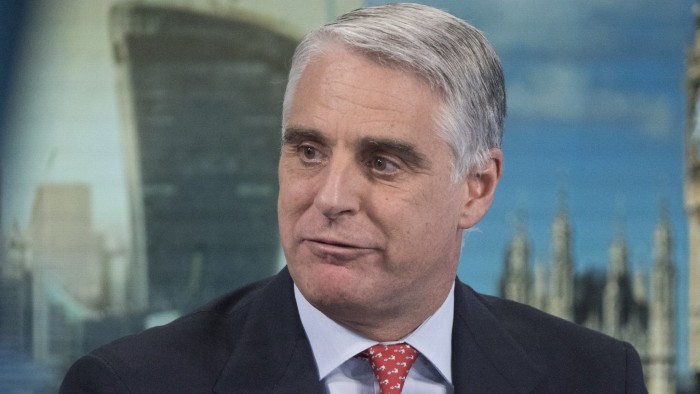Santander offered a €52m sign-on to Andrea Orcel

Roula Khalaf, Editor of the FT, selects her favourite stories in this weekly newsletter.
Santander offered to pay Andrea Orcel a sign-on package worth up to €52m in its aborted attempt to recruit him as chief executive, according to a formal offer letter seen by the Financial Times.
In the letter, which is signed by the company’s general-secretary, the Spanish bank said it would pay him a cash sign-on bonus of €17m as well as up to €35m of Santander shares to compensate him for deferred pay he risked forfeiting by quitting his job as head of UBS’s investment bank.
The letter, dated September 24, appeared to throw doubt on the official reason that Santander gave for rescinding the job offer in January, when the bank released a statement saying “the cost . . . of compensating Mr Orcel for the deferred awards . . . would be a sum significantly above the board’s original expectations”.
Mr Orcel is now launching a lawsuit against Santander, which alleges that the Spanish bank breached his contract and demands that the company hires him as its CEO or pays damages totalling €100m, according to two people who have seen the document.
The Santander letter said Mr Orcel was expected to make his “best efforts” to ensure that UBS continued to pay him tens of millions of deferred pay he had accrued during his seven-year stint. But it also stated that if UBS paid out less than he was due, then Santander would pay him a “buyout” up to a maximum of €35m in Santander shares.
In the event, UBS refused to pay out any of the deferred remuneration because Mr Orcel had breached a non-compete clause in his contract, which meant he would lose the payout if he joined another financial services company.
The FT has reported that Santander withdrew the job in part because its executive chair Ana Botin had second thoughts about the appointment owing to disagreements over the level of public profile that Mr Orcel would have after joining the bank.
The four-page offer letter also shines a light on the multimillion-euro pay packages that banks offer to secure top executives. In addition to the sign-on package, Santander offered to pay Mr Orcel an annual sum of €10m made up of €2.9m in base salary; €5.35m in annual target bonus; €829,000 in annual pension; and €921,000 of other benefits.
Mr Orcel’s lawyers are expected to argue that the offer letter — which states that his appointment must be approved by the bank’s board — is tantamount to a formal employment contract because Santander announced his hiring to the Madrid stock exchange on the day after it sent him the document.
Santander is expected to argue that Mr Orcel had several opportunities to reduce the amount he was set to receive from the Spanish bank but did not take them, meaning he did not make his “best efforts” to reduce the lender’s overall bill, according to a person familiar with the matter.
A Santander spokesperson said, “We have explained the rationale behind our decision not to appoint Mr Orcel clearly. We remain confident this was the right decision and will present evidence to the courts to support our position as required.”
A spokesperson for Mr Orcel declined to comment.
Comments